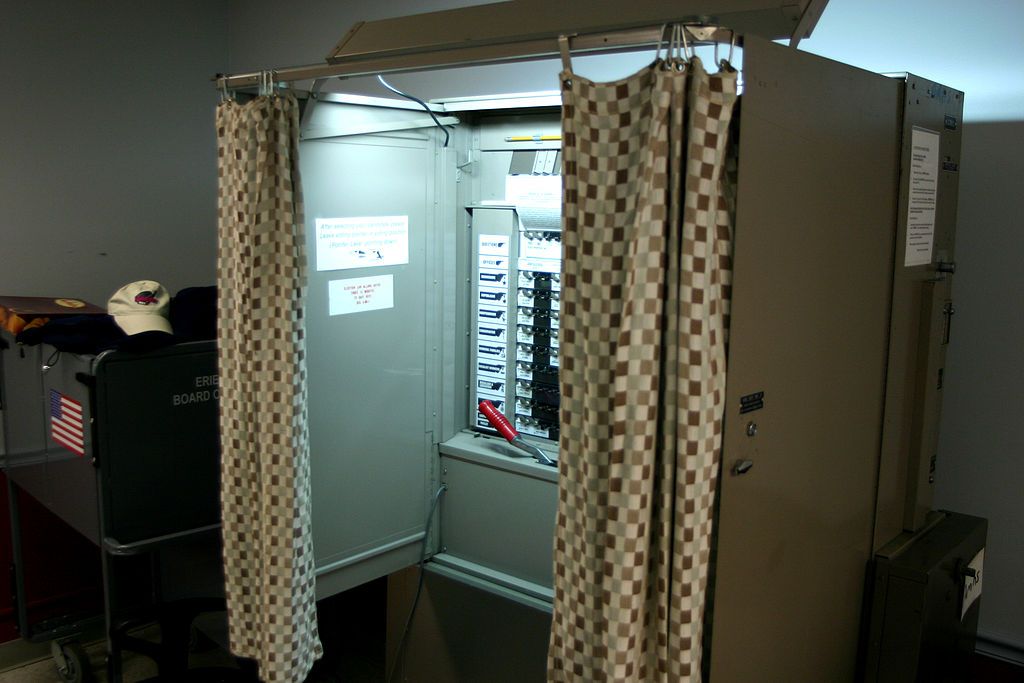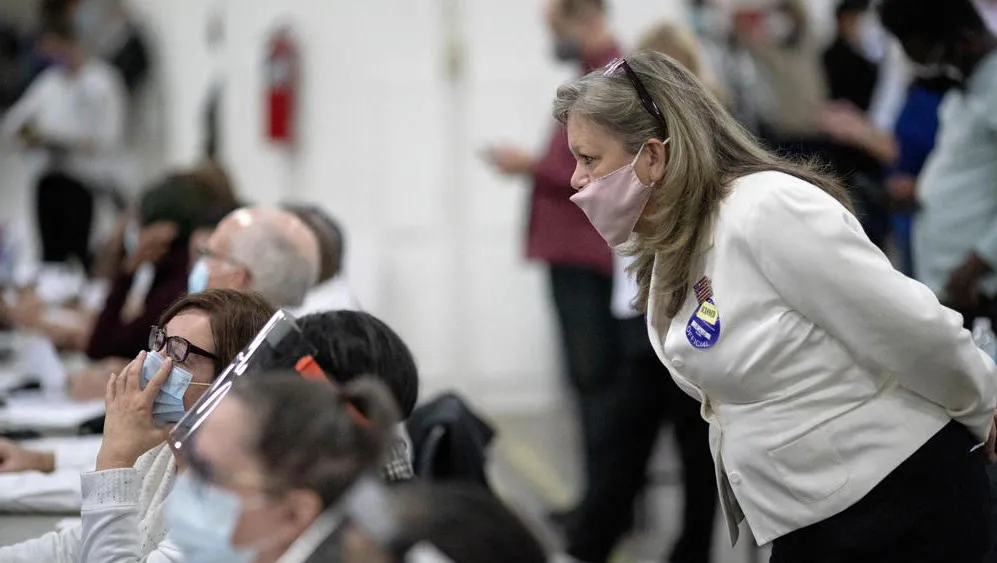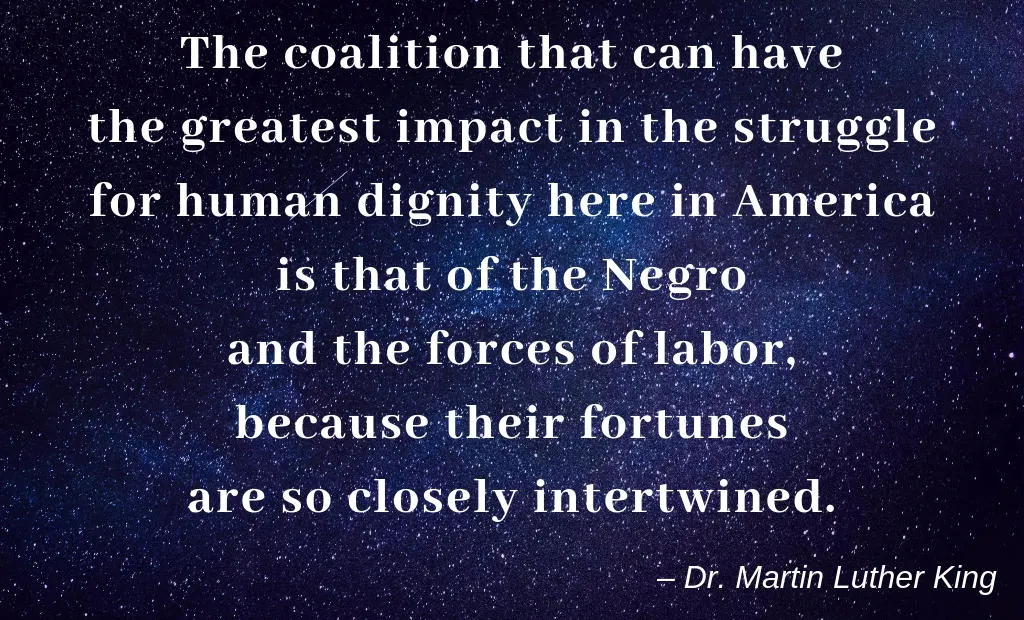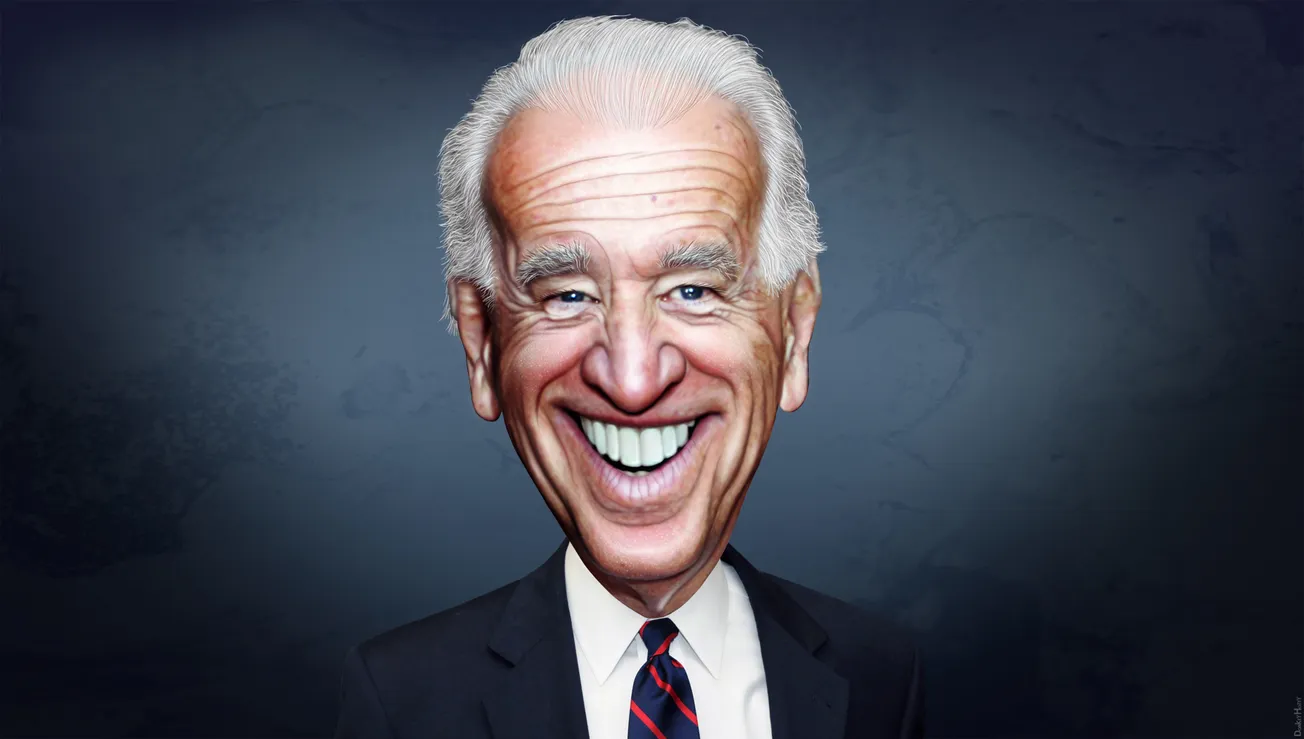As we head toward the midterms, there is growing concern over possible interference with the election – specifically, from persons recruited to be “election integrity observers.”
Besides being the publisher of Forward Kentucky, I am also a poll worker. Specifically, I am the “precinct sheriff” at my polling location. (No badge, sorry.) That role is charged with “maintaining order” at the polling place. This includes making sure no one is electioneering within 100 feet of the polling location.
All poll workers are required by law to go through training before every election. (And that does mean every election; my training for the primary didn’t count for the general, so I had to go again.)
So, to help make things clear for Kentuckians getting ready to go vote, I want to talk about who can and can’t watch you vote.
Who can watch you actually cast your vote?

The basic answer is “nobody.” The privacy of the polling booth is still sacred, even though we no longer use those booths with mechanical curtains.
The one instance that looks like someone can watch you vote is if you have a disability that requires you to use the ExpressVote machine, which is a touch-screen machine with headphones that prints out your marked ballot to then be scanned by the machine that scans everyone’s paper ballots. Some persons may need assistance using the ExpressVote machine. But even in that case, the election officers who help (always two – one Dem and one Repub) are required to step away as the voter casts their vote.
Who can be inside the polling location?
Obviously, voters. And the poll workers, which include the precinct clerk, the precinct sheriff, and two precinct judges.
In addition, there are other persons allowed inside the room where the voting is taking place:
- Anyone there to assist a voter
- A minor child in the company of a voter
- Persons authorized by the Election Center to repair voting equipment or to bring additional voting equipment
- Law enforcement officers, either local or state
- Members of the news media for the limited purpose of filming the voting process. Note that the media is not allowed to conduct interviews with voters inside the voting room, to record the identity of voters, or to disrupt the voting process.
- Challengers and observers, which are discussed below
Who is NOT allowed in the voting room?
- Friends or family of election officers, unless they are also election officers
- Candidates or their family members, except to vote and leave
- Campaign workers
- Exit pollsters
- General onlookers or well-wishers
- Members of political parties or political groups who are not duly appointed challengers
Election challengers and observers
Some people are concerned about various political groups, primarily right-wing and further-right-wing, actively recruiting people to go into a polling location and “make sure there’s no election fraud.” But at least in Kentucky, people can’t just stroll into the voting room and say they are there to monitor the election. Instead, in this state we have two groups of people that sort of fill that role: challengers and observers. But as you will see, there is a little more to it than just showing up.
Challengers
From my precinct officers’ manual: “A challenger is an individual appointed by a political party, or by an independent or non-partisan candidate, who can challenge the eligibility of voters and create checkoff lists of voters who have voted. Challengers must attend training and produce their written appointment if requested by an election officer. A challenger must be a registered voter in the county in which the election is being held. Each political party is entitled to have not more than two (2) challengers at each precinct during the primary or general election.”
The manual goes on to list the things a challenger may and may not do. Also, an election officer can order the challenger to leave the voting location if the challenger breaks one of the rules.
Since challengers have to attend training, the local Board of Elections knows who is certified to be a challenger in that county. When I attended my training for the upcoming general election, we asked about challengers, and were told there were no certified challengers in Jefferson County.
Observers
Again, from the manual: “KRS 117.275(9) allows the political parties, independent candidates, nonpartisan candidates, and others to designate a representative ‘to witness and check the vote count.’ These representatives are commonly referred to as observers. These individuals observe the opening and closing of the polls. They may come into the polling location to watch you run the zero tape in the morning and the totals tape in the evening. After the zero tape is printed in the morning, the observer must leave. The observer may return in the evening, as the polls close, to observe running the final vote count tape. Once the totals tape is printed in the evening, the observer must leave.”
In conclusion: Don’t be worried – just go vote!
In Kentucky, it’s pretty clear that you don’t have anything to worry about when it comes to “being watched” by persons at your polling location. Observers aren’t allowed in the voting room except first thing in the morning and last thing at night, and there just aren’t a lot of persons going to the trouble to be official challengers.
In fact, if anyone talks to you about “election fraud” in Kentucky, you can reassure them that our elections are both well-run and secure. A few years ago, I wrote a multi-part series on the voting process in Kentucky, and I came away impressed with just how secure it truly is. Since then, it has become even more secure, as we have moved to paper ballots almost exclusively.
Could people still show up to cause trouble on Election Day? Sure. But if they do, the precinct sheriff will call law enforcement immediately and have them removed – including if they are within the 100-feet boundary around the polling location.
So, go vote. Vote early, vote absentee, vote on Election Day. But above all, go vote. It is a privilege that is precious, bought with blood through the years, and given to us to maintain and keep safe.
Go. Vote.
--30--








